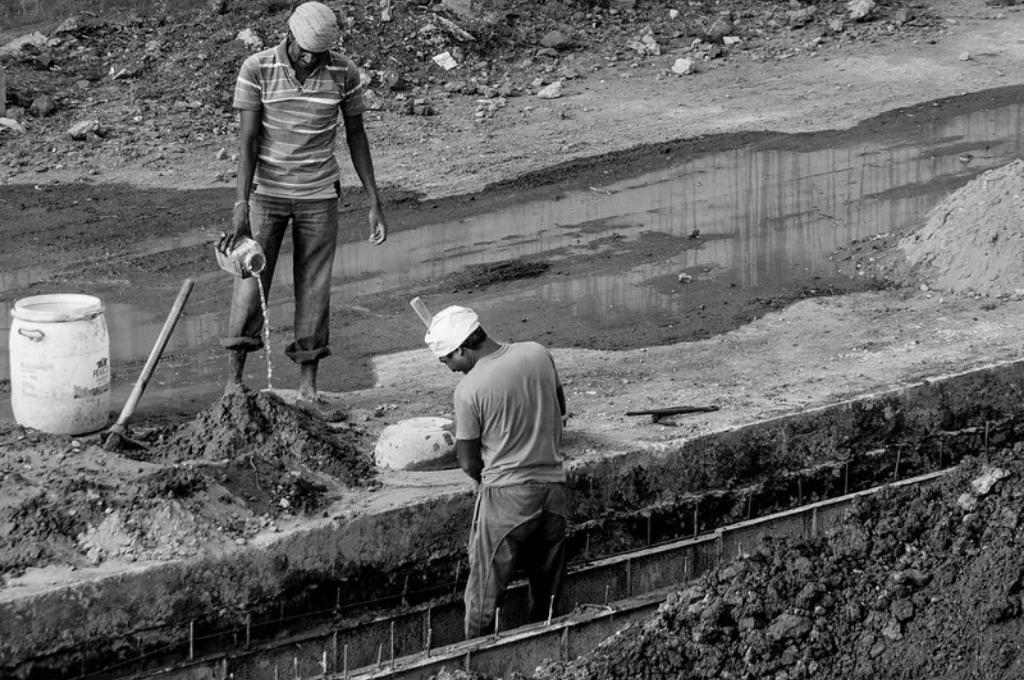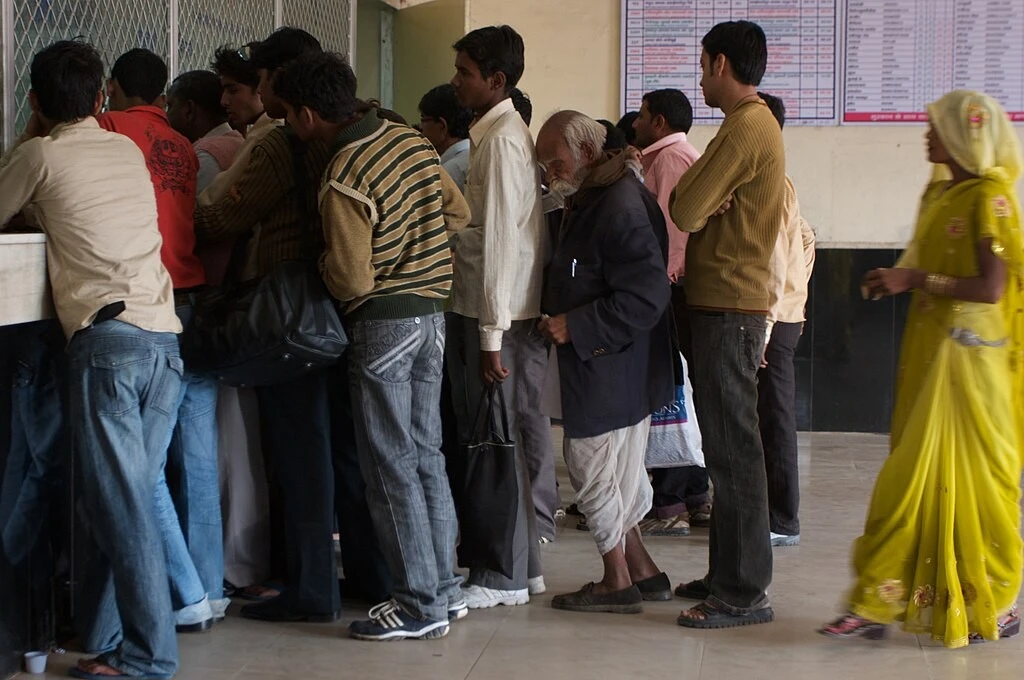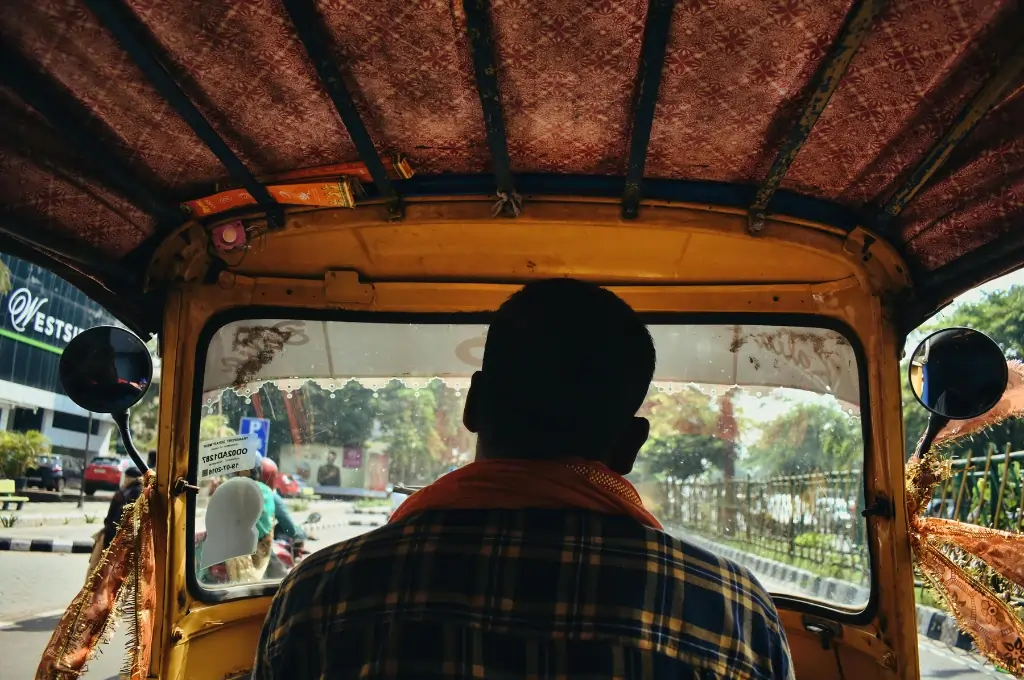The Building and Other Construction Workers (BOCW) card is a document that allows construction workers to access a host of welfare benefits. When Nitish Kumar, a construction worker from Bihar working at a Noida construction site learnt about this card, he was quick to show his intent to apply for it. “Had I known about this earlier, I would have started availing its benefits by now,” he said. Kumar’s interest in the BOCW card is not surprising. Out of the estimated 5 crore construction workers in India, less than 3.5 crore workers have it. The Construction Workers Welfare Board—set up by states and union territories under the BOCW Act and the BOCW Welfare Cess Act of 1996—is an alien entity for most Indian construction workers.
Once the BOCW card is made, workers can use it to apply for and avail of various social security benefits such as medical assistance, maternity benefits, accident cover, pension, educational assistance for their children, assistance to family members in case of death, group insurance, loans, funeral assistance, and marriage assistance for their children. Despite these benefits, data shows that funds in the BOCW cess go unutilised. Till March 2019, only 39 percent (less than INR 20,000 crore) of the INR 49,675 crore of cess collected had been utilised.
At Haqdarshak, we have worked with more than 10,000 construction workers in Delhi NCR alone. We support them to register for and avail benefits of the BOCW schemes. Through these interactions, we have observed that there are three key reasons why workers don’t avail these benefits.

Lack of awareness about BOCW card and schemes
There are more than 1 crore workers in Delhi, Uttar Pradesh, and Haryana, of which only around 24 lakh have an active BOCW certificate as per the estimates of the Ministry of Labour and Employment. Despite the spotlight on the BOCW card due to the cash transfers provided from the BOCW fund during the lockdown, a vast majority of the workers we interact with on a daily basis are still unaware of it. We did a rapid survey with 30 workers from construction sites in Delhi NCR in December 2020. We found that 24 of them did not know about the existence of this document. Moreover, among those who knew about it, workers still did not apply for it primarily because they were not aware of the registration process. We have also found that workers are hesitant to pay the government fee (an amount that varies from INR 20 to INR 105) for the BOCW card as they are not aware of the various claim schemes that they can avail once they get registered. There is also an element of fatigue as many have tried to apply multiple times and have been unsuccessful due to mistakes in the application form and/or incorrect or incomplete information in the documents submitted.
Lack of uniform processes across states
Since the implementation of the BOCW Act is in the states’ domain, the process to register varies from one state to another. There are also differences in registration fees, annual contributions, and requirements for periodic renewal of registration across states. Consequently, every time a worker changes their destination state of work, they need to reapply for the BOCW card. This is often the case in Delhi NCR, where workers regularly move from Noida to Delhi or from Delhi to Gurgaon for construction-related work.
Cumbersome documentation
A worker needs to produce several documents (at least five) to register with the BOCW board and this requirement varies from one state to another. In our experience, we have noticed that many workers do not have an Aadhaar card or a bank account. When they do have these in place, the information on these documents is often incorrect.

Workers also need to submit a ‘90 days certificate of employment’ to be eligible for the BOCW card. This certificate is issued by the contractor who employs the worker. In the construction industry, most workers are employed for short-term projects and therefore they find it hard to provide this proof of employment.
Without the right documents with accurate information, registration is impossible.

Varied application process
The application process also varies from one state to another. For instance, in Haryana and Delhi, the application process is online, while in Uttar Pradesh, both online and offline applications are acceptable. In Delhi, in addition to submitting the online application, workers also need to visit the office of the deputy secretary for physical verification within 30 days from the date of application. Filling out the application form with all necessary details is not an easy task for workers who have low literacy levels and limited access to digital systems.
Moving away from paper-based applications to digital ones hasn’t really reduced the transaction costs for workers.
Additionally, we have noticed that moving away from paper-based applications to digital ones hasn’t really reduced the transaction costs for workers. On the contrary, workers have to pay extra to get this certificate made via government-promoted Common Service Centers (CSCs) or touts and travel a few times to track their application status.
Complicated claim and renewal process
The processes to avail benefits of the BOCW schemes also vary from state to state. For example, in Haryana, one can apply for most claim schemes after a year of being registered, while in Uttar Pradesh, one can start applying for claim schemes two months after being registered. Scheme names, their benefits, and document requirements also vary for each scheme and state. This means that even after registration, workers need to provide a set of documents to apply for and benefit from schemes.
This bureaucratic process doesn’t end for workers after registration. They have to renew their registration periodically (every one, two, or three years depending on how much they paid the first time) to continue getting their entitlements. When their registration expires, workers need to reapply with the same set of documents. From our observations, many do not renew their registration.
Need to do more
Construction workers face multiple vulnerabilities on account of their socio-economic profile, migrant status, and informality of employment. Considering this reality, the entire process from registration to claims and renewal of the BOCW card needs to be simplified and streamlined. The BOCW Act has the potential to enhance the social security of this large workforce. However, some changes are needed. We have identified a few solutions that can be implemented to ensure that as many workers can avail of the benefits of the BOCW schemes:
1. Create awareness
There is an urgent need for states to make a concerted effort to generate awareness about this scheme and register workers. This must happen in rural areas as well as by developers on construction sites.
2. Relax conditions for the 90-day certificate of employment
It is difficult for most workers to produce this certificate, which makes it difficult to get the BOCW card made. The eligibility conditions for this certificate can be relaxed by making it 90 non-continuous workdays annually. Some states such as Delhi accept self-declarations post which workers are called to a location for physical verification. This option can be deployed by other states as well, as it gives workers an alternative way to show the 90-day certificate and avail the BOCW card and schemes.
3. Simplify eligibility for scheme benefits
Workers can apply for most BOCW schemes only after a certain period of being registered with the board. The challenge is that by the time workers become eligible to apply for these schemes, most of them have already migrated to another location. This makes it difficult for them to avail scheme benefits. This requirement should be relaxed so that workers can apply for all schemes right after registration or along with the registration.
4. Simplify the renewal process
If a worker has already registered for the BOCW card, they should be allowed to renew their registration with a new 90-day certificate from the contractor or by self-declaration. They should only have to furnish identity documents again if there have been any changes to these documents.
5. Implement a uniform structure across states
The Centre needs to take an active role in streamlining the implementation of the BOCW Act across states. Considering the mobile nature of the workforce, it would be easier if the same BOCW card is applicable in all states. This would help workers to avail scheme benefits faster.
The pandemic has exposed the extreme vulnerability of millions of migrant workers who remain invisible to the state, industry, and the public at large. These workers make up a majority of the informal workforce in our country and urgently need a safety net.
—
Know more
- Read about why registration requirements could prevent workers in the unorganised sector from accessing welfare benefits.
- Learn about the history of BOCWA, and why construction workers have missed welfare benefits for 23 years.
- Read the State of Working India 2021 report by Azim Premji University on the impact of COVID-19 in India on jobs, employment, inequality, and poverty.
Do more
- Connect with the author at sambhavna.biswas@haqdarshak.com to learn more about their work.




